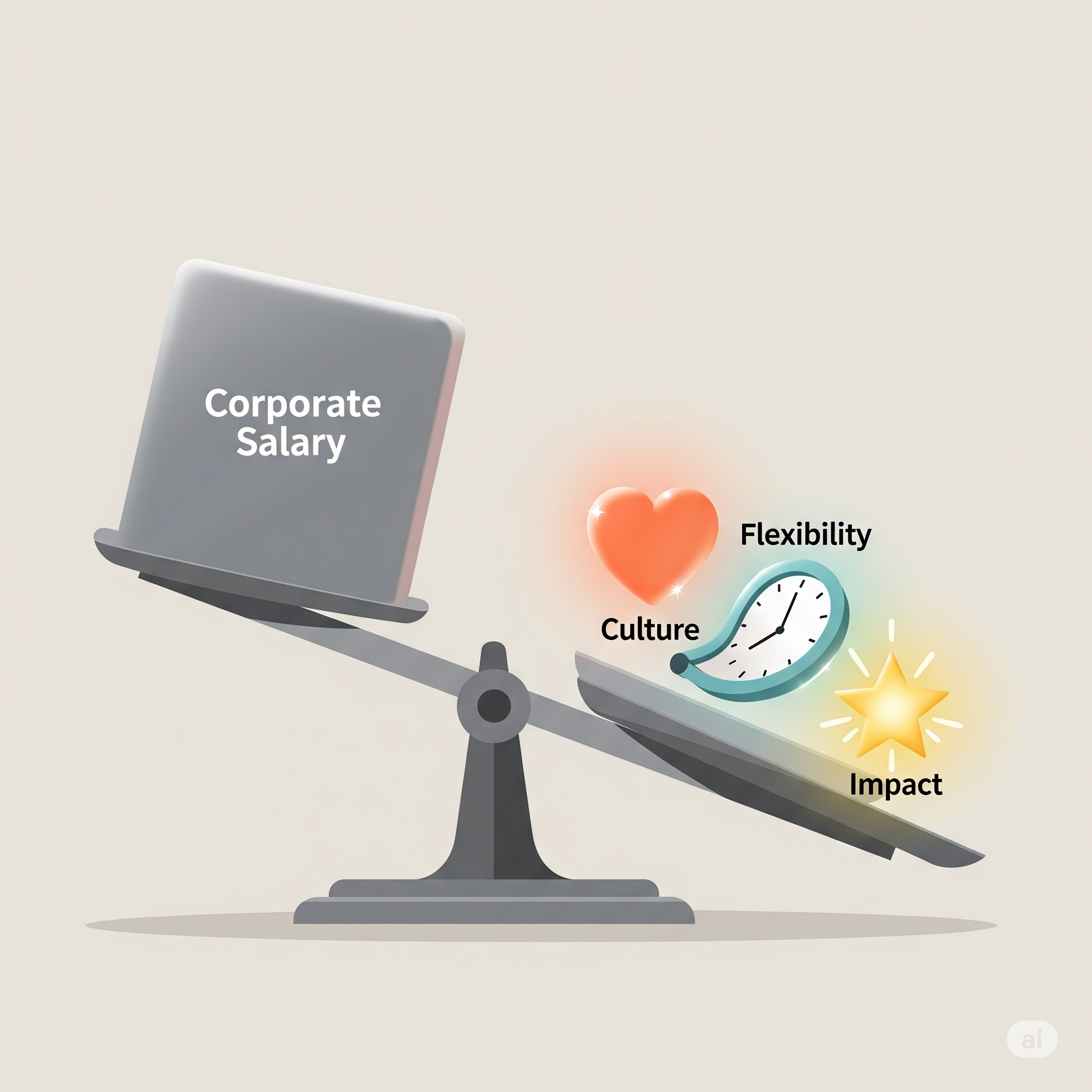We often hear that successful leaders must be “jacks-of-all-trades.” They should know a little bit about everything – marketing, finance, technology, human resources, and more. The idea is that if you’re not constantly expanding your knowledge into new areas, you’ll fall behind. This way of thinking often makes business leaders feel ashamed if they are *only* really good at one thing, calling them a “one-trick pony.”
But what if we flipped that idea on its head? What if being a “one-trick pony” isn’t a weakness, but a secret superpower? What if having a deep, laser-like focus on one specific area is actually the path to true success, innovation, and lasting impact?
The truth is, many of the most successful businesses and their leaders got where they are by mastering one thing exceptionally well. They didn’t try to be good at everything; they chose one area, dug in deep, and became the absolute best. This article will explain why embracing your inner “one-trick pony” is not just okay, but a smart strategy for business leaders looking to truly win.
The Myth of Multitasking and the Power of Deep Work
Think about how many times you try to do five things at once. You’re answering emails, talking on the phone, trying to review a report, and planning your next meeting, all at the same time. We often praise people who can multitask, thinking it makes them more productive. But research shows that multitasking actually makes us *less* effective. Our brains aren’t built to truly do multiple complex tasks simultaneously. Instead, we quickly switch between them, and each switch costs us time and mental energy.
This is where the concept of “deep work” comes in. Deep work means focusing without distractions on a single, important task that requires all your mental effort. When you commit to deep work, you’re not just busy; you’re creating something valuable and pushing your skills to a higher level.
For a business leader, embracing the “one-trick pony” mindset means embracing deep work. Instead of spreading your attention thinly across many different projects or areas of expertise, you pour your energy into mastering your core strength. This isn’t about being narrow-minded or unwilling to learn; it’s about understanding that true mastery comes from sustained, focused effort.
* Higher Quality Output: When your mind is fully on one task, the results are almost always better. You catch details, you think more creatively, and you make fewer mistakes.
* Faster Learning: By focusing, you learn the ins and outs of your chosen area much quicker and more thoroughly than if you were jumping from topic to topic.
* More Innovation: True breakthroughs often come from understanding one area so deeply that you see problems and solutions others miss.
When you’re the leader of a company, your ability to focus deeply on what truly matters to your business’s core strength can set the whole tone for your team. It shows them the importance of quality over quantity, and depth over breadth.
Why Specialization isn’t Stagnation: The Competitive Edge
Some people worry that specializing means you’ll become outdated or stuck. But in today’s complex business world, the opposite is often true. Specialization, or being a “one-trick pony,” gives you a powerful competitive edge that broader companies often lack.
Carving Out Your Niche
Imagine a huge ocean. Most businesses are trying to swim in the middle, competing with everyone else for the same fish. But a “one-trick pony” business leader doesn’t swim in the wide ocean. They find a specific, smaller pond – a “niche” – where they can be the biggest fish.
A niche is a specialized segment of a market. For example, instead of being a general clothing store, you might be a store that sells *only* eco-friendly activewear for women over 40. That’s a niche. By focusing on this niche, you can understand your customers perfectly, tailor your products just for them, and market directly to them.
* Clearer Target Audience: You know exactly who you’re serving and what their specific problems or desires are.
* Tailored Solutions: Your product or service can be designed to perfectly fit the needs of your niche, making it far more valuable than a generic offering.
* Less Direct Competition: While there might be many clothing stores, there are far fewer stores specializing in *exactly* what you offer.
When you’re a leader who embraces a niche, you’re not limiting your potential; you’re *defining* it with precision. This precision allows you to put all your energy into becoming the undisputed leader in that small, but highly profitable, segment.
Becoming the Go-To Expert
When you focus on one area, you naturally become an expert in it. People start to see you, or your company, as the authority. If someone has a specific problem, they won’t go to a generalist; they’ll seek out the specialist.
Think about doctors. If you have a heart problem, you don’t just go to any doctor; you go to a cardiologist – a heart specialist. In business, it’s the same. If your company needs a very specific type of software, you’ll look for the company that *only* makes that kind of software, not a company that makes all kinds of software.
Becoming the “go-to expert” brings many benefits:
* Increased Credibility and Trust: Customers trust experts. They believe you know what you’re talking about and can deliver the best results.
* Premium Pricing: Specialists can often charge more for their services because of their unique expertise and the value they provide. People are willing to pay more for the best.
* Stronger Referrals: When people need your specific “trick,” they’ll immediately think of you and recommend you to others. Word-of-mouth becomes a powerful marketing tool.
A one-trick pony leader understands that being the best at one thing is far more valuable than being “pretty good” at many things.
Reduced Competition (in your specific area)
In broad markets, competition is fierce. Companies fight tooth and nail over every customer. But when you specialize, you reduce the number of direct competitors. You’re not fighting against everyone; you’re dominating a smaller playing field.
This doesn’t mean there’s *no* competition, but it means the competition you face is often less intense and more clearly defined. Your deep expertise makes it very difficult for generalists to compete with you in your specific niche. They simply don’t have the same level of knowledge, experience, or tailored solutions.
Imagine a startup trying to enter the market for that specific eco-friendly activewear for women over 40. You, as the established leader in that niche, have already built brand recognition, customer loyalty, and optimized your supply chain for that exact product. A general clothing brand trying to add a similar line would struggle to compete with your deep understanding and efficiency.
By focusing, you build a moat around your business – a protective barrier that makes it harder for others to steal your customers or copy your success.
The Efficiency and Innovation Dividend of Focus
Being a “one-trick pony” isn’t just about gaining an edge; it’s also about working smarter, not just harder. Deep focus leads to incredible efficiency and opens doors for true innovation.
Streamlined Operations
When your business is focused on doing one thing exceptionally well, everything becomes simpler. You don’t need to manage a vast array of products or services. Your processes can be fine-tuned and perfected.
Think about a restaurant that only serves one dish, like a famous ramen shop. They don’t need to worry about cooking many different types of food. They can focus all their energy on sourcing the best ingredients for ramen, perfecting their broth, and serving it quickly and consistently. This level of focus allows them to:
* Reduce Waste: Less variety means less inventory, less spoilage, and more precise ordering.
* Improve Processes: Every step in making that one thing can be optimized for speed and quality. Your team becomes incredibly skilled at that specific task.
* Allocate Resources Better: Your money, time, and people can all be directed towards perfecting your core offering, rather than being spread thin.
A leader who champions this kind of focus understands that true efficiency isn’t about doing more, it’s about doing the right things better.
Faster Problem Solving
When you’re deeply knowledgeable about a specific area, you can identify and solve problems much faster. You’ve seen similar issues before, you understand the underlying causes, and you know the best tools and approaches.
If you’re a leader of a company specializing in specific accounting software, and a customer calls with an unusual bug, your team won’t waste time trying to understand different types of software. They’ll immediately jump into the specific code and logic they know inside and out. This saves time, reduces frustration, and leads to happier customers.
* Deep Understanding: You’re not just guessing; you have a profound knowledge of how your core “trick” works, including its common pitfalls.
* Pattern Recognition: With repeated exposure, you start to recognize patterns in problems, allowing for quicker diagnosis and resolution.
* Fewer Distractions: Your mind isn’t cluttered with irrelevant information from other domains, allowing for clear thinking.
This speed in problem-solving is a massive advantage, especially in a world where quick reactions can make or break a business.
Paving the Way for True Innovation
Many people think innovation comes from jumping from one idea to another. But often, the most groundbreaking innovations come from someone who understands a specific area so deeply that they can see entirely new possibilities within it.
Imagine the early days of personal computers. Companies didn’t start by trying to make every kind of electronic device. They focused intensely on making computers better, faster, and more user-friendly. It was this deep focus that led to innovations like graphical user interfaces, faster processors, and new software.
A “one-trick pony” leader isn’t afraid to dive into the minutiae of their chosen field. They understand that innovation isn’t always about inventing something entirely new from scratch; sometimes, it’s about:
* Refining the Existing: Making something already good, even better. Think of how Apple refined the smartphone, rather than inventing it from scratch.
* Solving Niche Problems: Finding a specific problem within their field that no one else has addressed effectively.
* Leveraging Deep Knowledge: Using their profound understanding to connect seemingly unrelated ideas *within their domain* to create something novel.
By focusing on one area, you’re not limiting innovation; you’re creating the perfect environment for it to flourish within your expertise.
Building a Resilient Business Around Your Core Strength
A business built on a strong, focused core is often more resilient and able to withstand challenges than one that tries to do too much.
Stronger Brand Identity
What do people think of when they hear your company’s name? If you’re a “one-trick pony,” the answer is clear. You are known for *that one thing*. This makes your brand identity powerful and memorable.
Think of companies like FedEx (overnight shipping), or even In-N-Out Burger (simple, fresh burgers and fries). They are famous because they do one thing, and they do it incredibly well. Their brand is instantly recognizable and associated with their core offering.
* Clarity in Messaging: It’s much easier to explain what your company does when it’s just one main thing. Your marketing messages are clear and consistent.
* Memorable Brand: When you’re the best at something specific, people remember you. You stand out from the crowd.
* Defined Purpose: Your entire organization can rally around a single, clear purpose: to excel at your “one trick.”
A leader who embraces this focus gives their brand a sharp edge, making it stand out in a noisy marketplace.
Enhanced Customer Loyalty
Customers often seek out specialists for specific needs. When they find a business that truly understands their particular problem and solves it exceptionally well, they become incredibly loyal.
If you consistently deliver the best eco-friendly activewear for women over 40, those customers will come back to you again and again. They won’t just be buying a product; they’ll be buying the expertise, the understanding, and the perfect fit that only you can provide.
* Meeting Specific Needs: You’re not just *a* solution; you’re *the perfect* solution for a particular group of people.
* Building Trust: Consistent excellence in one area builds deep trust with your customer base.
* Community Building: Customers with niche interests often form communities, and your business can become a hub for them, fostering strong loyalty.
This deep customer loyalty acts as a powerful barrier against competitors and provides a stable base for your business’s growth.
Adaptability Through Mastery
Some people worry that being a “one-trick pony” makes a business inflexible if the market changes. But true mastery in one area actually makes you *more* adaptable within that domain, not less.
When you deeply understand the fundamental principles, the underlying technologies, and the core needs within your niche, you’re better equipped to spot shifts and adapt. You’re not rigidly stuck to one *product*, but to a core *competency*.
For example, a company that specializes in specific financial software might adapt its product as new regulations come out or as technology evolves. They don’t need to learn a whole new industry; they just need to apply their deep knowledge of finance and software to the new circumstances within their field.
* Spotting Trends Earlier: Because your focus is narrow, you’re more likely to see subtle shifts in customer needs or technology within your specific area.
* Faster Pivoting: When a change is needed, your deep understanding allows you to pivot and innovate quickly within your domain.
* Core Competency, Not Just Product: Your “trick” isn’t just one product, it’s the underlying skill, knowledge, and problem-solving ability that you can apply to different expressions of your core strength.
This ability to adapt within your domain ensures long-term relevance and success, even in a changing world.
Practical Steps for Embracing Your “One-Trick Pony” Power
So, how does a business leader actually become a successful “one-trick pony”? It requires discipline, self-awareness, and a willingness to challenge common business advice.
Identify Your True Calling/Core Competency
This is the first and most important step. What is it that you, or your business, are *truly* best at? What problems do you solve with unique excellence? It’s not always about what you *want* to be good at, but what you *are* good at.
* Reflect on Your Strengths: Where do you consistently deliver exceptional results? What do people always come to you for?
* Pinpoint a Problem You Love to Solve: What challenges energize you and your team? Passion often leads to mastery.
* Analyze Your Market: Where is there an unmet need that your unique strength can fill better than anyone else?
* Listen to Your Customers: What do your most loyal customers consistently praise you for? This is often your “trick.”
Don’t be afraid to be brutally honest here. It’s better to admit you’re amazing at one thing than to pretend you’re great at ten.
Say “No” More Often
This is perhaps the hardest part for many business leaders. Opportunities are constantly knocking, and it’s tempting to say “yes” to everything that promises growth or revenue. But a true “one-trick pony” understands the power of saying “no.”
* Resist “Shiny Object Syndrome”: Don’t chase every new trend or potential new market. If it doesn’t align with your core “trick,” it’s a distraction.
* Filter Opportunities: Evaluate every potential project, partnership, or product expansion through the lens of your core competency. Does it enhance your “trick” or dilute it?
* Protect Your Focus: Saying “no” to things that are outside your core allows you to say a powerful “yes” to what truly matters and focus all your energy there.
The discipline of saying “no” is what allows your “one trick” to become a masterpiece.
Continuous Learning Within Your Domain
Being a “one-trick pony” doesn’t mean you stop learning. It means you commit to relentless learning *within your specific domain*. Mastery is not a destination; it’s an ongoing journey.
* Stay Ahead of Trends: Be the first to understand new developments, technologies, or challenges within your niche.
* Deepen Your Expertise: Read, research, attend conferences, and connect with other experts in your field. Always be pushing the boundaries of your knowledge.
* Experiment and Innovate: Use your deep knowledge to experiment with new ways to apply or improve your “trick.”
This continuous learning ensures that your “one trick” remains cutting-edge and relevant, making you an evolving expert, not a stagnant one.
Build a Supporting Team Around Your Focus
Being a “one-trick pony” leader doesn’t mean you have to do everything yourself. In fact, it means the opposite. Your job is to lead the *mastery* of that one trick. You should then surround yourself with people who are experts in all the other areas that support your core.
* Hire for Complementary Skills: If your “trick” is amazing product development, hire a brilliant sales and marketing team to get it out there.
* Delegate Effectively: Empower your team to own their specific functions, allowing you to maintain your focus on the core strategy.
* Leverage Partnerships: You don’t need to build everything in-house. Partner with other businesses or freelancers who excel in areas outside your core competency (e.g., legal, accounting, IT infrastructure).
By building a strong supporting cast, you free yourself to dedicate your primary attention to what makes your business truly special.
Real-World Examples (and how to learn from them)
While I can’t name every specific company, we can look at types of businesses that embody the “one-trick pony” principle and how they’ve succeeded:
* The Niche Software Company: Think of a software company that *only* builds project management tools for architectural firms. They don’t try to make software for everyone. Because of their focus, they understand the unique workflows, legal requirements, and communication needs of architects better than any general project management software. They can charge a premium, attract loyal clients, and innovate specifically for that industry.
* **Lesson:** Deep industry knowledge combined with specific software solutions creates an unbeatable product.
* The Ultra-Specialized Consulting Firm: Imagine a consulting firm that specializes *only* in helping small, family-owned manufacturing businesses transition to new leadership. They don’t do general business consulting. Their “trick” is understanding the unique emotional, financial, and operational challenges of family successions in a specific industry. They become invaluable to their clients.
* **Lesson:** Focusing on a very specific problem for a defined audience allows for deep empathy and highly effective, tailored solutions.
* The Single-Product Restaurant: There are restaurants famous for just one dish – like a particular kind of dumpling, a specific style of pizza, or that legendary ramen shop we mentioned. They often have lines out the door. Why? Because they’ve poured all their passion and effort into perfecting that one thing. They don’t distract themselves with a huge menu, allowing them to focus on quality ingredients, perfect execution, and efficient service for their signature item.
* **Lesson:** Perfection in one offering, delivered consistently, creates buzz and unwavering customer demand.
These examples show that success doesn’t always come from being broadly diversified. Often, it comes from being incredibly good at one specific thing that a particular group of people values highly.
Addressing Common Concerns & Misconceptions
Even with all the benefits, some doubts might linger about the “one-trick pony” approach. Let’s tackle them head-on.
“Isn’t it risky to put all your eggs in one basket?”
This is a common concern. On the surface, it seems like having only one core strength is risky. What if that market disappears or changes?
However, the risk is often reduced, not increased, by deep focus.
* Reduced Superficial Risk: When you try to be good at everything, you’re often just “okay” at many things. This means you’re vulnerable to anyone who truly specializes in any one of those areas. Diversification can mean spreading your weaknesses, not your strengths.
* Increased Proficiency & Foresight: A “one-trick pony” knows their basket *inside and out*. They are far more likely to see potential shifts, threats, or opportunities within their niche earlier than someone who’s broadly diversified. Their deep knowledge allows them to adapt proactively.
* Higher Value & Stronger Relationships: Because you’re the best at your “trick,” your value to customers is higher, and your relationships are stronger. This makes you more resilient to market fluctuations than a generalist who can be easily replaced.
True risk comes from a lack of deep understanding and mastery. The “one-trick pony” reduces this fundamental risk.
“What if my niche disappears?”
Markets evolve, and what’s popular today might be gone tomorrow. But being a specialist doesn’t mean being rigid. It means mastering a *competency* that can be applied even if the specific product or market changes.
* Fundamental Principles: If your “trick” is something like “highly efficient data processing” or “understanding complex human behavior,” those underlying principles don’t disappear. The *application* might change (e.g., from desktop software to cloud services), but your core skill remains valuable.
* Adaptability Within the Niche: As mentioned earlier, deep knowledge allows you to adapt. If your niche is eco-friendly activewear, and suddenly a new material becomes popular, you, as the expert, will be among the first to adopt it, rather than being left behind. You’re not tied to one *version* of the trick, but the *ability* to perform it well.
* Foresight: Because you’re so immersed in your niche, you’re better positioned to anticipate shifts and pivot your “trick” before it becomes obsolete.
“Doesn’t it limit growth?”
This is another misconception. Growth isn’t only about expanding into entirely new markets or offering a vast array of products.
* Deeper Market Share: You can grow by capturing a larger share of your existing niche. Becoming the undisputed leader in a specific market can lead to massive revenue.
* Adjacent Niches: Once you dominate your core “trick,” you can expand into very closely related, or “adjacent,” niches. For example, the eco-friendly activewear company might expand to eco-friendly casual wear, leveraging their material sourcing and customer base. This is growth by natural extension, not broad diversification.
* Premium Pricing: As an expert, you can often command higher prices, which directly translates to increased revenue and profitability without needing to chase massive volume.
* Scalability of Expertise: Your “trick” can be scalable. If it’s a service, you can train others to replicate your mastery. If it’s a product, you can expand production.
Growth for a “one-trick pony” is often about going *deeper* or *smarter*, rather than just wider. It’s about maximizing the value of your core strength.
Conclusion
It’s time to retire the negative idea of the “one-trick pony.” In today’s complex and competitive business landscape, focus is not a limitation; it’s a strategic advantage. Business leaders who are truly successful often aren’t those who try to be good at everything. Instead, they are the ones who have the courage, discipline, and vision to choose one area, master it completely, and build an entire business around that singular excellence.
By embracing your core strength, you can:
* Achieve unparalleled **efficiency** and **innovation**.
* Develop a powerful **brand identity** that resonates with your target audience.
* Cultivate deep **customer loyalty** and become the undisputed “go-to” expert.
* Build a **resilient business** that can adapt and thrive, even amidst change.
So, if you’re a business leader, stop feeling ashamed about having a “one trick.” Instead, celebrate it. Nurture it. Perfect it. Because in a world full of generalists, the true winners are often those who boldly choose to be the best at just one thing. Your “one trick” isn’t a weakness; it’s the superpower that will lead you to victory.



